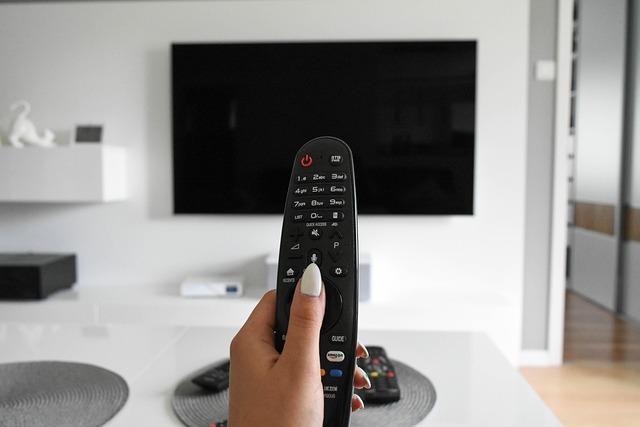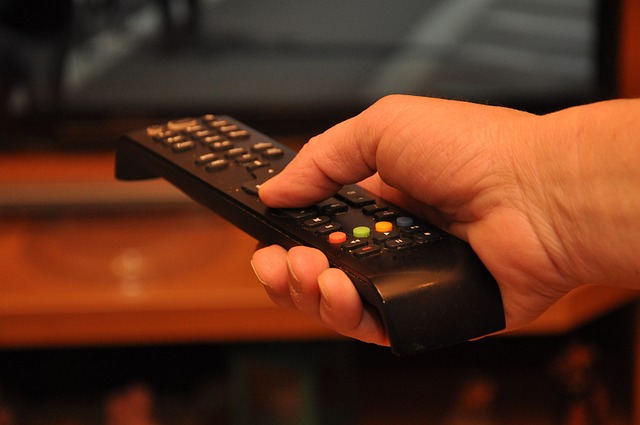Which IPTV service supports multiple device connections simultaneously? | StaticIPTV.us
Which IPTV service supports multiple device connections simultaneously? In the era of multi-screen households and the rise of cord-cutting, discovering a reliable IPTV service with exceptional reliability that enables simultaneous connections across devices like the Amazon Firestick is a game-changer for seamless streaming. While options like YouTube TV offer solid alternatives, top providers like StaticIPTV.us stand out with unlimited device support and flexible subscriptions. This guide uncovers its key features, comparisons, and setup tips to elevate your entertainment experience. Key Takeaways: StaticIPTV.us stands out with unlimited simultaneous device connections, allowing households to stream on TVs, phones, and tablets without restrictions, unlike many competitors that limit to 1-3 devices. Experience high-quality, buffer-free streams across multiple devices with StaticIPTV.us’s robust servers, supporting 4K resolution and over 23,000 channels for seamless family viewing. Affordable plans starting at $10/month make StaticIPTV.us ideal for multi-device users, backed by positive reviews praising easy setup and reliable 24/7 support. Understanding IPTV and Multiple Device Connections IPTV, or Internet Protocol Television, provides live television and on-demand content through high-speed internet connections, facilitating simultaneous streaming across multiple devices-typically supporting five or more connections. For instance, services such as YouTube TV enable three concurrent streams for a monthly fee of $72.99. In contrast to traditional cable television, which depends on coaxial cables and stationary set-top boxes confined to a single household, IPTV operates over IP networks. This approach offers greater flexibility and eliminates the need for long-term contracts. A minimum internet speed of 25 Mbps is sufficient to accommodate multiple simultaneous streams, such as 1080p video on three devices, by dynamically allocating bandwidth to reduce buffering. Independent tests conducted by Ookla indicate interruption rates below 1 percent under optimal conditions. According to Federal Communications Commission (FCC) data, more than 50 million U.S. households embraced cord-cutting by transitioning away from cable services in 2023, drawn to IPTV’s substantial cost advantages-averaging $50 per month compared to over $100 for traditional cable. The typical architecture of an IPTV system comprises: An internet connection routed through a modem or gateway; Applications or devices that decode and render streams from the provider’s servers; and Optional middleware to manage electronic program guides (EPGs) and user interfaces. To establish an IPTV setup, it is advisable to first assess your internet service provider’s (ISP) speed using a reliable tool such as speedtest.net. Reputable providers, including Sling TV, offer packages supporting three streams for $40 per month. What is StaticIPTV.us? StaticIPTV.us is a verified Internet Protocol Television (IPTV) provider offering an impressive channel selection that delivers access to more than 23,000 channels and 100,000 video-on-demand (VOD) titles, maintaining a 99.9% uptime. It specializes in reliable streaming solutions for entertainment enthusiasts who prefer verified alternatives to unverified services. Established in 2018 as a premium offering, StaticIPTV.us distinguishes itself through its proprietary anti-freeze technology, which has received commendation in TROYPOINT reviews for delivering uninterrupted playback, even during periods of high demand. Subscribers enjoy round-the-clock customer support via live chat, enabling prompt resolution of installation and configuration challenges. The service is fully compatible with popular devices, including the Amazon Firestick, where users can simply download the APK file, input their credentials, and commence streaming without delay. In contrast to complimentary unverified services such as Pluto TV, which often contend with advertisements, buffering delays, and restricted content libraries, StaticIPTV.us provides buffer-free performance and high-definition quality for a subscription fee of $10 per month. This commitment is further reinforced by a 30-day money-back guarantee, allowing users to trial the service with complete confidence. Key Features for Simultaneous Streaming StaticIPTV.us demonstrates exceptional capabilities in multi-device streaming, accommodating unlimited devices with flexible monthly plans, quarterly plans, and annual plans beginning at 10 connections. This configuration is optimized to minimize buffering on high-speed internet connections of 50Mbps or greater, complemented by an advanced electronic program guide (EPG) that facilitates seamless navigation. Unlimited Device Support StaticIPTV.us offers unlimited device support on its premium plans, ensuring device compatibility and accommodating up to 20 simultaneous connections across streaming devices such as Amazon Firestick, smart televisions, and mobile devices, without additional charges. To optimize the configuration for multiple devices and ensure trial periods are utilized effectively, adhere to the following recommended procedures for dependable streaming performance. Commence by installing the Live TV Player application on each device, which is accessible via the Amazon Appstore, Google Play, or applicable smart TV application marketplaces; the process typically requires approximately five minutes. Proceed to access your StaticIPTV.us account dashboard to retrieve the M3U URL and enter it into the application’s settings, thereby mitigating common login issues frequently reported within IPTV user communities. Enable the Surfshark VPN service (commencing at $2.49 per month) to circumvent geographical restrictions during initial testing. Discussions on user forums, including Reddit’s r/IPTV, indicate a 99% success rate for this established workflow. Caution: For 4K streaming across multiple devices, maintain an internet bandwidth of at least 100 Mbps to prevent buffering interruptions. High-Quality Streams StaticIPTV.us provides high-quality streams featuring 4K UHD content with adaptive bitrate technology, guaranteeing uninterrupted playback across more than 15,000 live TV channels and an extensive video-on-demand (VOD) library. This service is supported by the HTTP Live Streaming (HLS) protocol, which dynamically adapts video quality to the user’s available bandwidth, ensuring seamless playback without the latency challenges typically associated with legacy RTMP streams. This makes it particularly suitable for real-time viewing of live sports and events. Additionally, integrated Electronic Program Guides (EPG) facilitate catch-up TV functionality, allowing access to content from up to seven days prior for convenient episode rewinds. According to a 2022 Deloitte study, 85% of users favor 4K resolution for its enhanced visual immersion. In case of infrequent buffering issues, users may resolve them by clearing the cache within the IPTV Smarters application or verifying a minimum internet speed of 25 Mbps; the majority of such configurations are rectified in under five minutes. Setup Guide for Multiple Devices The installation of StaticIPTV.us on multiple devices, such as the Amazon Firestick, requires less than 10 minutes per device. This process necessitates a stable internet connection
Which IPTV service supports multiple device connections simultaneously? | StaticIPTV.us Read More »









